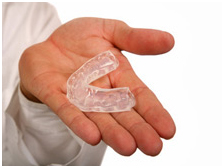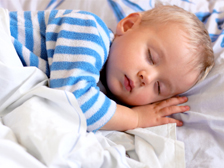
Bruxism (Teeth grinding)
Bruxism also called teeth grinding, affects most of the population, but is not a concern until it becomes heavy and frequent.Causes:
- Bad occlusion or alignment of jaw;
- Stress;
- An abnormal closure of the teeth caused by misaligned teeth or many absent teeth.
Symptoms:
Because teeth grinding often occurs while sleeping, the problem might go unnoticed. However, morning migraine or jaw pain, and cracking of the jaw, are symptom that suggests the presence of bruxism.Complications:
Severe chronic teeth grinding can result in a fracture tooth, or tooth loss. In extream cases bruxism can also worsen the condition of the jaws. If not treated, this problem can lead to a partial loss of hearing affect the temporo-mandibular joint (TMJ), or even change the appearance of the face.
Treatments:
With severe bruxism case the following should be done:- Reduce stress;
- Reduce caffeine (coffee, chocolate, soft drinks);
- Avoid chewing on objects;
- Stop grinding your teeth if it occurs when your awake;
- Use a damp warm cloth applied against face in front of the ears to relax jaw muscles before sleeping;
- Wear a bite splint while sleeping.

Bruxism in children
Up to 33 percent of children grind their teeth while teething. Parent should not worry as most will grow out of this stage, but the following should be performed:- Reduce stress level (i.e. action movie);
- Face massage to relax face muscles;
- Ensure that the child drinks plenty of fluids as dehydration may cause bruxism;
- Ask your dentist to check if your child has signs or bruxism, such as tooth wear.
For an appointment please call: CDS (514) 333-3360 or E-mail us.
*(Voicemails will be answered ASAP.)






